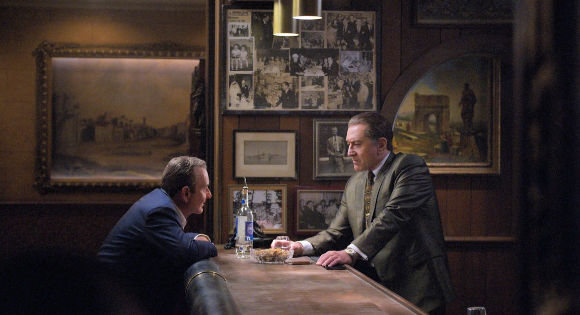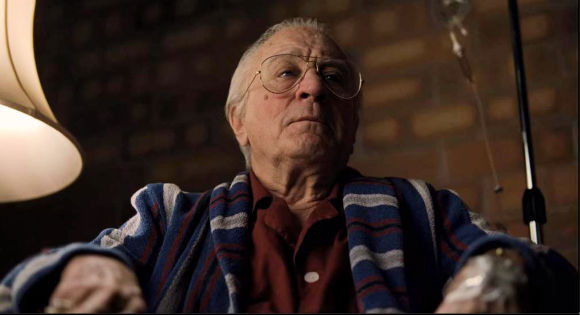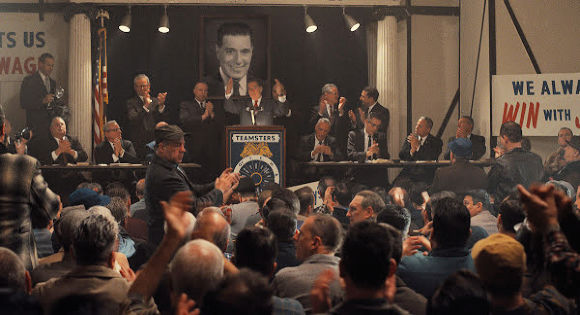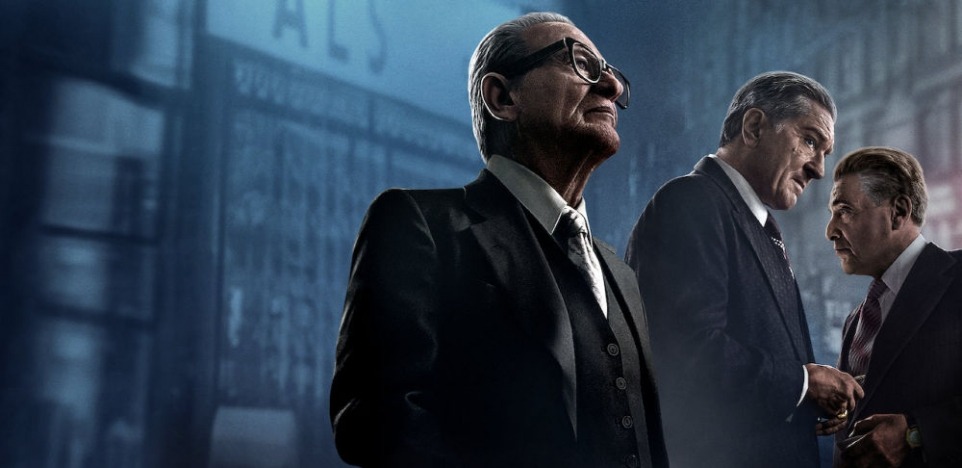The activities of organized crime, a.k.a. the Mafia, are often justified as just another example of entrepreneurial competition. Just think of all the American films that have held up the Mafia mystique, depicting as entertainment murder, corruption, cheating, lying, and scorn for ethics and morality. Frances Ford Coppola's award-winning three-film series The Godfather comes to mind, as does the phenomenally successful HBO TV series The Sopranos. Fans of both have already praised director Martin Scorsese's new entry into the genre.

The Irishman is set in the Philadelphia underworld where a union-loving truck driver, Frank Sheeran (Robert De Niro), serves as an errand boy for crime kingpin Russell Bufalino (Joe Pesci). After he efficiently carries out his orders, the boss considers him like a son. Impressed with Frank's ability to keep quiet, he suggests that he become the bodyguard for Jimmy Hoffa (Al Pacino), the longtime president of the Teamsters Union. His loyalty to both these charismatic figures eventually enables Frank to become a local Teamsters leader himself.
At the beginning of the film, Frank begins telling the story of his life while living in a run-down nursing home. Scorsese and screenplay writer Steve Zaillian must hope that by seeing him in a diminished condition, audiences will identify with a character who in a fit of anger can smash the fingers of a grocery store owner, shoot a low-life in the face, fire-bomb a competitor, or walk calmly into a restaurant to shoot Joey Gallo, a celebrity gangster.

Over the years, we see Frank become both more ruthless and more faithful to those he serves. He evolves from a truck driver making some extra bucks by stealing meat to a ruthless hitman who is supposedly in a position of power (and even is honored with a lavish dinner), yet always his fear and unwillingness to challenge anybody keeps him firmly under the control of higher-ups in the crime syndicate. Viewers may wonder about but will not be surprised at the changes he goes through.
Perhaps the most interesting aspect of The Irishman (loosely based on the book I Heard You Paint Houses by Charles Brandt) is the depiction of what might have happened to Jimmy Hoffa who disappeared on July 30, 1945. Another bit of fascinating information is that the Bay of Pigs invasion of Cuba was orchestrated by John F. Kennedy as a political repayment to the Mafia for helping him win the Presidency; the real goal of the invasion was to enable the mob to regain control over all the gambling operations in Cuba.

DeNiro, Pacino, and Pesci all give strong performances and demonstrate that age has not diminished or taken away their extraordinary acting skills. We only wish that Scorcese and Zaillan had given them something more imaginative to work with than this gangster retread
